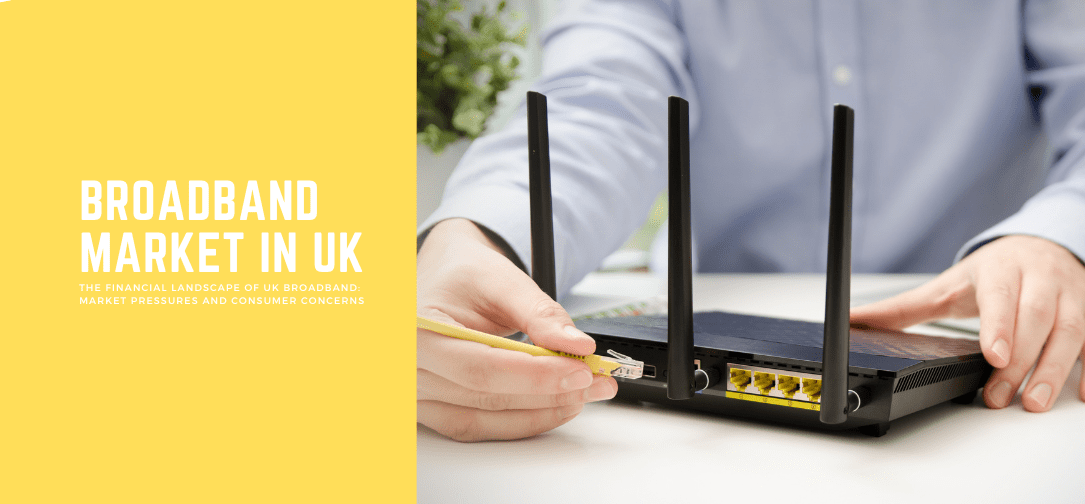The financial landscape of the UK broadband market is influenced by market pressures and consumer concerns. Market share is concentrated among major providers, but smaller players are gradually gaining traction. The average cost of broadband varies across regions, and affordability remains an important consideration for consumers. The emergence of new challengers, such as Virgin Media O2, signifies potential changes in the industry’s competitive landscape. As the broadband industry continues to evolve, ensuring fair competition, affordability, and widespread access will be key priorities for regulators and providers alike.
UK Broadband Market Overview
The UK broadband industry has become an essential part of everyday life, with reliable internet access being a necessity for households across the country. As streaming services and remote work become increasingly prevalent, broadband has become a vital tool for communication, information, and entertainment. In this article, we will explore the current state of the UK broadband market, including market share, challenges faced by independent full-fiber networks, and the impact of economic factors on broadband rollout.
According to market share statistics, the major broadband providers in the UK are BT Group (including BT, EE, and Plusnet), Sky, Virgin Media O2, and TalkTalk, collectively serving over 85% of customers. BT Group holds the largest market share at 33.6%, followed by Sky with 22.54%, Virgin Media with 20.18%, and TalkTalk with 9.53%. However, the dominance of these major players is being challenged by the emergence of independent full-fiber networks and smaller resellers. Companies such as Vodafone, Shell Energy Broadband, Hyperoptic, Community Fibre, Zen Internet, and Gigaclear are gradually expanding their customer bases and offering alternatives to the traditional providers.
Average Cost of Broadband
The average cost of broadband in the UK is an important consideration for consumers when choosing a service provider. As of 2023, the average monthly cost of broadband in the UK is £26.90. However, there are regional variations in broadband costs. Wales has the cheapest average broadband at £26.87 per month, followed by England at £26.88, Scotland at £27.12, and Northern Ireland at £28.04.
Various factors can affect broadband pricing, including package availability, provider uptake, and specific pricing based on location. Additionally, some providers charge fees for activation, set-up, or installation, which can vary depending on the provider and contract length. However, efforts have been made to make broadband more affordable. The UK ranks as the fifth most affordable country in the world for broadband as a percentage of income per capita, with an average cost of £26.39 per month, representing around 1.16% of the average citizen’s monthly earnings.
The government has also introduced initiatives to subsidize broadband installation costs. Through the Gigabit Broadband Voucher Scheme (GBVS), eligible households and businesses can claim vouchers worth up to £1,500 and £3,500, respectively, to help cover the costs of installing gigabit broadband. This scheme aims to promote the adoption of high-speed broadband across the UK.
Broadband Affordability and Consumer Concerns
Affordability remains a significant concern in the broadband market. Approximately 8.1 million households in the UK struggle to afford their communications services, and around 1.4 million households find it difficult to afford fixed-line broadband. High costs are often a barrier to internet access, especially for the lowest socio-economic groups. This issue has led to investigations by regulatory bodies such as Ofcom into inflation-linked price rises across the industry and the transparency of pricing by mobile and broadband companies.
Consumer groups have raised concerns about the impact of price rises on broadband take-up. Telecoms companies raised bills by as much as 15% in April, and further inflation-busting price increases are expected in the coming year. A 2022 Ofcom report highlighted that 7% of UK adults do not have access to the internet at home, with a quarter of these individuals citing high costs as the main reason. This percentage rises to over a third for individuals in the lowest socio-economic groups.
Efforts are being made to address these concerns. Ofcom is committed to protecting consumers and has opened investigations into price rises and the transparency of charging practices. The regulator aims to ensure that broadband prices remain affordable and that providers are accountable for their pricing strategies.
Future Trends and Industry Changes
The UK broadband market is undergoing significant changes that will impact competition and infrastructure development. Virgin Media O2, a major player in the broadband industry, has announced the creation of a new entity aimed at taking on BT Openreach. This new body, known as a dedicated fixed network business or “NetCo,” will focus on encouraging and strengthening fiber take-up and rollout across the country. Virgin Media O2 plans to upgrade its cable and fiber network assets, covering 16.2 million premises, to full fiber in the coming years. This move by Virgin Media O2 represents a major challenge to BT Openreach’s dominance in the industry.
The emergence of a new challenger in the broadband market signifies potential shifts in industry competition and infrastructure development. Virgin Media O2’s new offering will not only provide an alternative to BT Openreach but also create opportunities for consolidation among alternative network providers. Additionally, the new entity aims to pursue wholesale opportunities as a scaled network alternative, offering wider network choice for other providers.
While the major broadband providers are expected to maintain their dominance, smaller providers and independent networks are gradually expanding their market shares and customer bases. Vodafone, Shell Energy Broadband, Hyperoptic, Community Fibre, Zen Internet, and Gigaclear are among the emerging players challenging the positions of the big four providers.



































